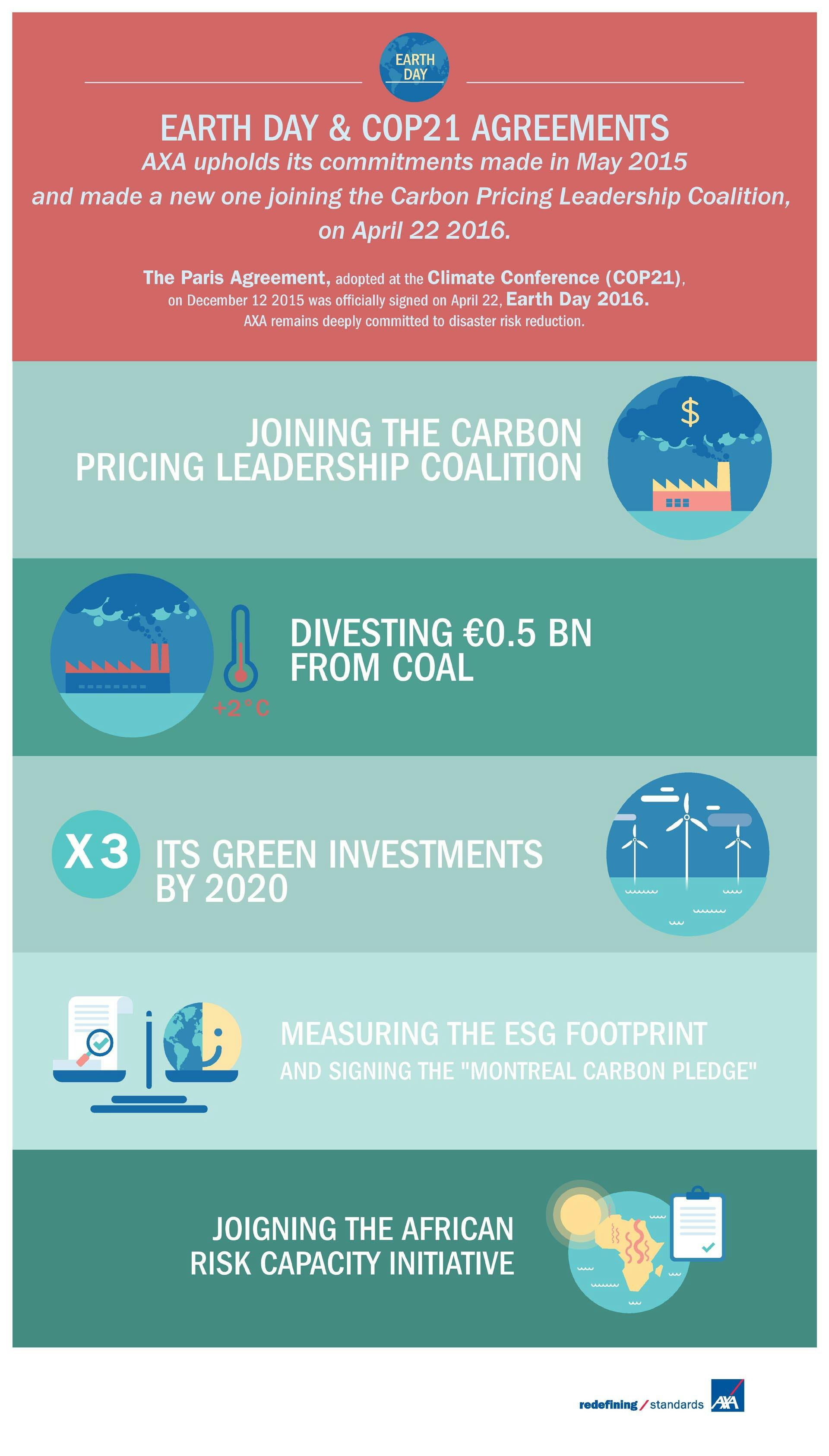
April 22, 2016
A step further toward reducing climate risk
On Earth Day, April 22, the climate agreement adopted last December at the COP21 talks in Paris will be officially signed at the UN headquarters in New York. This is a crucial move forward, fully supported by the AXA Group, as it shows today by joining the Carbon Pricing Leadership Coalition.
2 minutes
Building on the commitments already made in May 2015, today the AXA Group has joined the Carbon Pricing Leadership Coalition, a public-private-civil society initiative led by the World Bank. AXA is the first insurer member to join the coalition. The new initiative is a part of international efforts to fight problems related to climate change. It aims to promote close collaboration between the public and private sectors, an essential prerequisite to finding new solutions.
Carbon pricing is attracting growing interest as a way to fight climate change. About forty countries and more than twenty cities, states or provinces are already or will soon be implementing a carbon tax or an emissions trading system. Putting a price on carbon helps to place the burden of the damage resulting from greenhouse gas emissions on those who are causing them and are able to reduce them.*
The Paris Agreement was adopted on December 12, 2015, by the 195 countries that took part in the negotiations at the 21st Conference of Parties (COP21) held in Paris. The agreement set a universal goal, which is to keep global warming to under 2°C by 2100.
A signing ceremony will take place on Friday, April 22, to spur parties into action and encourage nations to quickly sign the agreement. The final text of the Paris Agreement will be open for ratification at the UN’s New York headquarters from April 22, 2016, to April 21, 2017.
AXA and COP21
AXA has worked alongside national governments toward the adoption of an ambitious climate agreement. In May 2015, the Group set itself several concrete goals in order to help the global fight against climate change, for example via its investments:
- Divest up to €500 million from companies with high exposure to coal;
- Triple its green investments to over €3 billion by 2020;
- Integrate environmental, social and governance (ESG) criteria into all the main asset classes of AXA’s General Account invested assets and to publish the carbon footprint of this investment portfolio, in accordance with its Montreal Carbon Pledge.
AXA is also involved in the African Risk Capacity initiative, a regional reinsurance mechanism established to help African Union member states to better prepare for extreme climate events and ensure food security for the most vulnerable communities.




